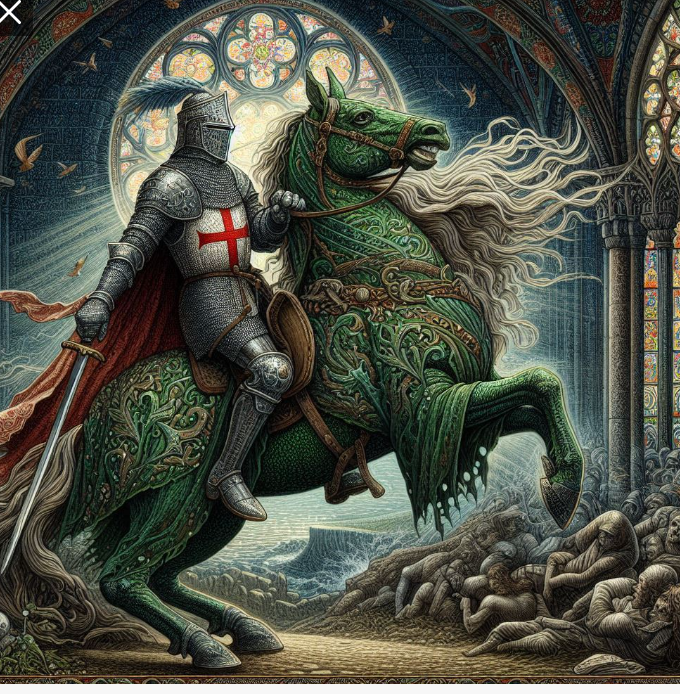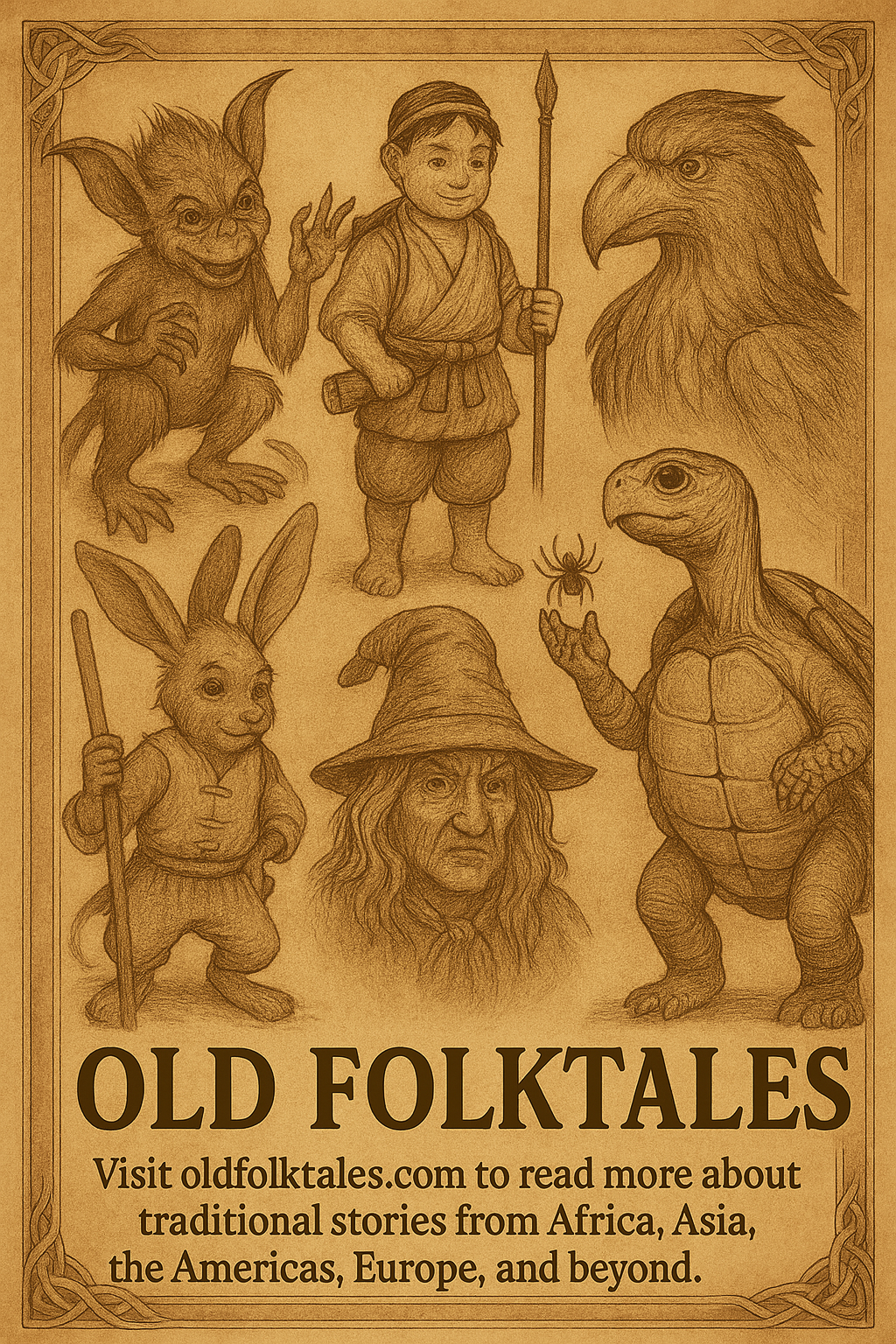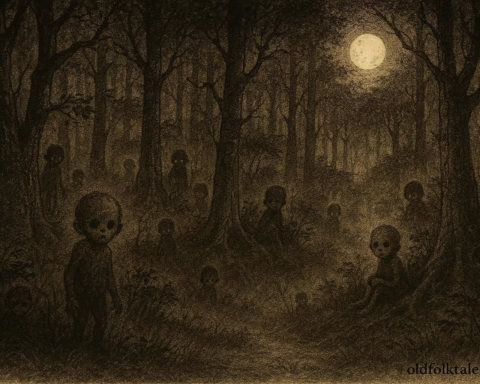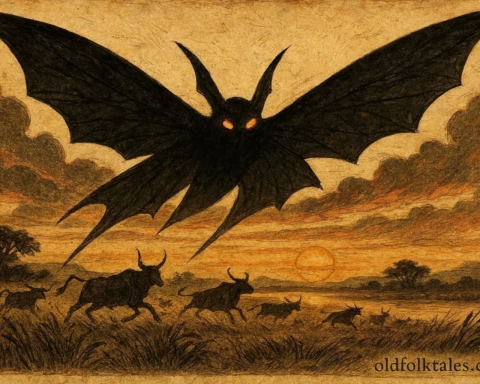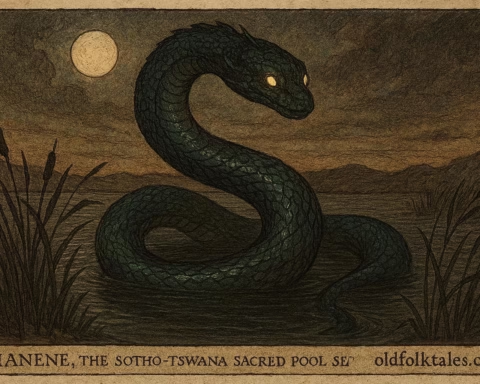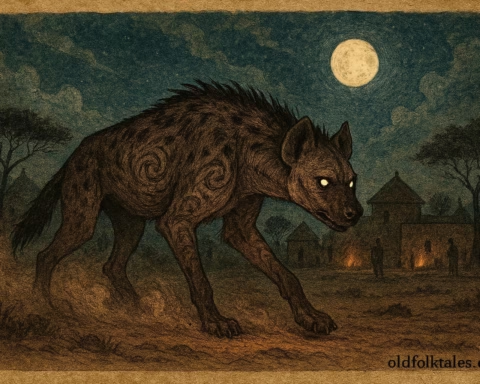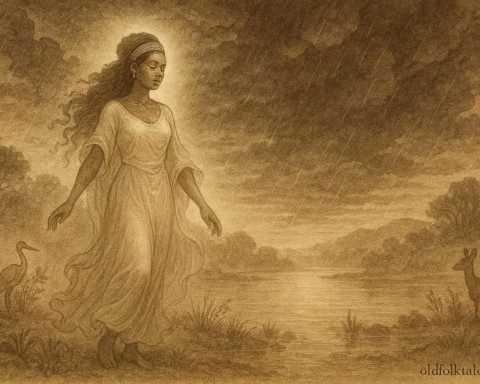It was Yuletide at Camelot, the high hall of King Arthur, where fires roared, laughter rang, and the long tables bent beneath boar’s haunch and steaming venison. The Round Table knights, proud in their steel and silk, had gathered to feast. But Arthur, ever keen for marvels, had declared, “No meat nor mead shall I taste until a wonder graces this hall.”
As if summoned by his words, the great doors thundered open. Into the hall rode a horseman clad entirely in green, man, steed, and even the great axe in his hand glimmered with emerald sheen. His beard was like holly leaves in frost, his eyes bright as winter moss. He spoke in a voice that rolled like deep water.
“Which of you bold men will test your valour?” he said, lifting the axe. “Here is my bargain, strike me a single blow, and in one year’s time, you must seek me at the Green Chapel and receive the same in return.”
A hush fell, for the challenge was strange, and his immortal bearing stirred unease. When no knight rose, young Sir Gawain, nephew to Arthur and the court’s quietest champion, stepped forward. “My liege, let this be mine. If it is folly, better my loss than yours.”
Arthur gave him leave, and the Green Knight dismounted, kneeling calmly as if his head were of no consequence. Gawain’s stroke was sure, swift and clean, it sent the green head rolling across the rushes. But the body did not fall. Instead, the Knight rose, took up his head by its long hair, and held it aloft. The lips moved.
“One year hence, Sir Gawain, seek me, as you have sworn.” And so he rode away, head in hand, vanishing into the frost.
The Long Road to Winter’s Reckoning
The year turned. Seasons ripened and fell. Yet Gawain did not shirk his word. At Michaelmas, he armed himself, bright mail, helm crested with gold, and upon his shield the pentangle of truth. He rode through wild lands, over bare moors, through forests where frost silvered every branch, and wolves howled beneath the moon.
One bitter evening before Christmas, he came upon a great castle. The lord, Bertilak, a man broad and ruddy with cheer, welcomed him. Beside him sat his lady, whose beauty was like May’s first blossom. They offered him warmth and feasting, and, when he confessed his quest, Bertilak laughed. “The Green Chapel is but two miles hence! Rest here till New Year’s Day, and I shall guide you myself.”
Bertilak then proposed a game of their own: “Wyhile I hunt each day, you remain here. At night, we will trade what each has won.” Gawain agreed readily.
The Temptations of the Lady
On the first morning, Bertilak rode for deer. That day, the lady entered Gawain’s chamber, her eyes bright with mischief. She praised his courtesy, his fame, his form, and, leaning close, sought a kiss. Gawain, unwilling to be rude yet bound by honour, gave her a chaste one. That night, Bertilak returned with a fine stag. Gawain gave him the kiss he had “won” without naming its source, and Bertilak gave him the venison in return.
The next day, with Bertilak away hunting a boar, the lady came again, pressing harder, her words winding like ivy around his resolve. Again, he gave her only a kiss, which he dutifully traded for the boar’s head that night.
On the third day, she entered in silken green, speaking softly of the dangers he faced. She offered him a girdle of green silk, saying, “Wear this, and no blade may harm you.” Fearing death at the Knight’s axe, Gawain accepted and swore to keep it secret. That night, he gave Bertilak three kisses, but not the girdle.
The Green Chapel
On New Year’s Day, Bertilak led him to a hollow by a frozen brook, where a mound stood overgrown with winter weeds. From within came the grinding sound of a whetstone. The Green Knight emerged, axe in hand.
Gawain knelt, baring his neck. The first swing halted just short. “You flinched,” said the Knight, and Gawain steeled himself. The second swing, too, stopped, a test of nerve. The third fell true, grazing his neck so that blood darkened the snow.
The Knight lowered his axe. “I am Bertilak. It was I who tested you, by my lady’s hand and by the bargain in my hall. Twice you were true; the third day, you kept the girdle and broke your oath. Yet I count you the most honourable of men, for your fault was born of love for your life, not malice.”
Gawain, shamed, returned the girdle, but the Knight bade him keep it as a token.
Moral of the Tale
So Sir Gawain returned to Camelot, girdle at his side, and told all. The court did not mock but wore green baldrics in his honour, that they might remember a man’s courage is tested not only in battle, but in the quiet chambers where choice is made. For in the heart’s hidden places, honour may triumph, or falter, and in that lies the measure of a hero.
Knowledge Check
- What is the moral of the folktale “Gawain and the Green Knight’s Bargain”?
The story teaches a timeless lesson about honour, temptation, and human frailty, showing that true bravery lies in facing the truth of one’s actions. - What culture or region does the tale “Gawain and the Green Knight’s Bargain” come from?
This legendary folktale originates from Celtic legend, preserved in the medieval British Arthurian tradition. - Why did Gawain accept the Green Knight’s bargain?
In the tale, Gawain accepted the Green Knight’s bargain out of loyalty to King Arthur and a desire to protect the honour of Camelot. - How does the folktale “Gawain and the Green Knight’s Bargain” reflect a cultural belief?
The story reflects the medieval chivalric code, emphasising loyalty, truth, and the moral testing of knights beyond the battlefield. - Is “Gawain and the Green Knight’s Bargain” considered a myth, epic, trickster tale, or origin story?
“Gawain and the Green Knight’s Bargain” is a heroic saga that reveals the values and moral ideals of Celtic chivalric tradition. - How is the story of “Gawain and the Green Knight’s Bargain” relevant to modern readers?
This legendary tale remains relevant as it teaches enduring truths about integrity, humility, and the courage to admit one’s faults.
Cultural Origin: This story is inspired by the oral and literary traditions of Celtic legend and the medieval British Arthurian cycle.
